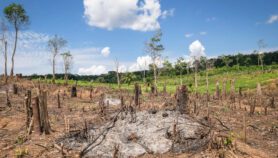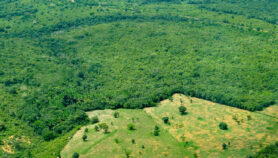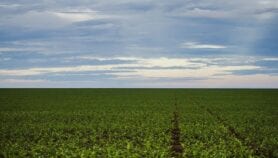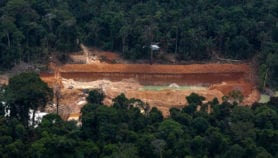By: Talent Ng’andwe
Send to a friend
The details you provide on this page will not be used to send unsolicited email, and will not be sold to a 3rd party. See privacy policy.
Up to 250 million people across Africa could be facing water shortages by the year 2020 as a result of global warming, and the output of water-fed agriculture could fall by 50 per cent during the same period, according to the latest international assessment of the impact of human-induced climate change.
The warning comes from the UN Intergovernmental Panel on Climate Change (IPCC), which says that developed countries aren’t spending enough to limit the effects of climate change on developing countries ― making it harder for poor countries to deal with the impact of global warming.
In a report released on Friday (6 April) the IPCC’s Working Group 2, which is responsible for monitoring the impacts of climate change impacts as well as adaptation and vulnerability issues, says that two-thirds of the atmospheric build-up of carbon dioxide comes from the United States and western Europe.
It says that rich nations far from the equator are spending billions of dollars to limit the risks to themselves, investing in new technologies such as wind-powered plants that turn seawater to drinking water, flood barriers, floating homes and genetically modified crops.
At the same time, however, the report points out that only tens of millions of dollars have been provided to vulnerable countries close to the equator, raising concerns of a growing ‘climate divide’ between wealthy and poor nations.
The IPCC report says that it has become increasingly clear that global precipitation is shifting away from the equator towards the poles. This will increase agricultural production in regions like Canada and Siberia, but leave drought-prone countries such as Malawi even shorter of water then they are at present.
The report cites obsolete meteorological data, a lack of irrigation, excessive dependence on single crops, vanishing forests, and land degradation as major challenges to African countries facing climate change.
Jacob Nkomoki, chief forecast officer at the Zambia Meteorology Department, says that some of the effects of climate change — such as widespread flooding — can only be reduced by equipping African meteorology departments with modern forecasting equipment, and setting up early warning systems.
Saleemul Huq, lead author of the report’s chapter on adaptation, says that an increase in hurricanes, heat waves, floods and drought during the last decade of the 20th century provides strong evidence that climate change is occurring.
Climate change will have a particular impact on poor people who live in least developed countries, says Huq, with those living in small island developing states in Asia’s vast river deltas and in most African nations being the most vulnerable.
Huq also points out that although a number of funds have been created to support adaptation in the poorer nations, the few hundred million dollars that have been pledged is only a tiny fraction of the tens of billions of dollars that are needed to allow poor countries to adapt adequately.













